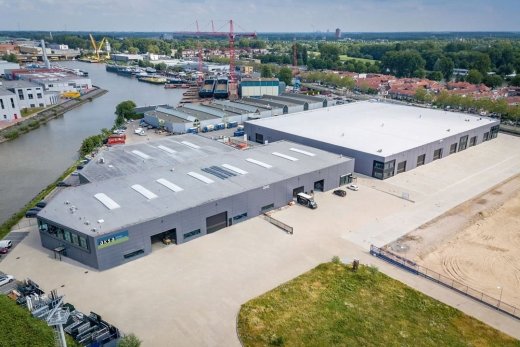Generators are crucial for ensuring a reliable power supply during outages, supporting residential, commercial, and industrial operations. However, like any mechanical and electrical system, generators are prone to various issues that can impact their performance. Some problems are minor and can be fixed with basic troubleshooting, while others require professional attention to prevent costly damage.
In this guide, we will explore the most common generator problems, their potential causes, and how to fix them. For major or persistent issues, it’s always best to seek expert assistance from Power Genset NL to ensure safety and efficiency.
Generator Won’t Start
One of the most common and frustrating issues with generators is failure to start. If your generator refuses to power up, it could be due to several reasons. Here’s what to check:
Possible Causes and Solutions
Battery Issues
- Dead or Weak Battery: A discharged or weak battery is a frequent cause of startup failure. Use a multimeter to check the battery voltage. If it’s low, recharge or replace the battery.
- Loose or Corroded Battery Connections: Inspect the terminals and clean any corrosion with a wire brush. Tighten the connections to ensure a good electrical flow.
Fuel Problems
- Empty Fuel Tank: Ensure there’s enough fuel in the tank. If the generator has been running for long hours, it may have simply run out.
- Stale or Contaminated Fuel: If the generator has been sitting unused for months, fuel can degrade and clog the system. Drain the old fuel and refill with fresh fuel.
- Air in the Fuel System: If the generator has a diesel engine, air pockets in the fuel line can prevent startup. Bleed the fuel system following the manufacturer’s guidelines.
Ignition System Failures
- Faulty Spark Plug: A dirty or worn-out spark plug can prevent the engine from starting. Remove the plug, clean it with a wire brush, or replace it if necessary.
- Malfunctioning Starter Motor: If the starter motor is damaged, it may not engage properly. If you hear a clicking sound but the engine doesn’t crank, the starter motor might need replacement.
If your generator still won’t start after checking these common issues, it’s best to contact Power Genset NL for professional diagnosis and repair.
Generator Runs But Doesn’t Produce Power
If your generator starts but fails to deliver electricity, it indicates an issue with the electrical generation process. Several factors could be responsible:
Possible Causes and Solutions
Tripped Circuit Breaker
- Generators are equipped with circuit breakers to protect against overloads. If the breaker has tripped, reset it and reduce the load before restarting.
Loss of Residual Magnetism
- Some generators rely on residual magnetism in the alternator to start producing electricity. If this magnetism is lost (often due to long periods of inactivity), the generator won’t generate power. You may need to “flash” the generator by applying external voltage to restore magnetism.
Faulty Automatic Voltage Regulator (AVR)
- The AVR controls the voltage output of the generator. If it’s defective, the generator may run but fail to supply power. Replacing the AVR usually resolves this issue.
Generator Overheating
Overheating is a serious issue that can cause long-term damage if not addressed promptly. Generators rely on cooling systems to maintain optimal operating temperatures.
Possible Causes and Solutions
Low Coolant or Engine Oil
- Check the coolant and oil levels regularly. Low coolant can cause overheating, while insufficient engine oil increases friction, leading to excess heat.
Blocked Radiator
- Dirt, dust, and debris can clog the radiator fins, reducing airflow and cooling efficiency. Regularly clean the radiator with compressed air or water to remove blockages.
Faulty Cooling Fan or Water Pump
- If the cooling fan isn’t functioning, heat will build up quickly. Inspect the fan for damage and ensure it operates properly.
- A failing water pump can also lead to overheating by restricting coolant circulation. If the pump is malfunctioning, it may need replacement.
Ignoring overheating issues can result in severe engine damage, requiring costly repairs or even a full generator replacement. If your generator frequently overheats, contact Power Genset NL for professional service.
Generator Producing Unstable Voltage (Voltage Fluctuations)
Voltage fluctuations can damage sensitive electronics and reduce the lifespan of connected appliances. If your generator’s voltage output is inconsistent, investigate these possible causes:
Possible Causes and Solutions
Worn-Out Brushes or Slip Rings
- In brush-type alternators, carbon brushes and slip rings wear down over time, leading to poor electrical contact and voltage instability. If your generator is experiencing fluctuations, inspect and replace these components if necessary.
Malfunctioning AVR
- The AVR regulates voltage output. A faulty AVR can cause inconsistent power supply, requiring replacement.
Uneven Load Distribution
- Generators should be properly loaded to maintain stable voltage output. Ensure that electrical loads are balanced across all phases in three-phase generators.
For persistent voltage issues, consult Power Genset NL’s experts for in-depth troubleshooting and repairs.
Excessive Exhaust Smoke
Excessive exhaust smoke often indicates engine problems that require immediate attention. Different colors of smoke signal different issues:
Possible Causes and Solutions
Black Smoke
- Indicates too much fuel or not enough air in the combustion process. Possible causes include:
- Dirty or clogged air filter—clean or replace it.
- Faulty fuel injectors—inspect and replace if necessary.
White Smoke
- Suggests that coolant is leaking into the combustion chamber. Causes may include:
- A cracked engine block or blown head gasket—these require professional repair.
- Condensation—if the white smoke appears only when starting the generator in cold weather, it may be normal and will clear up once the engine warms.
Blue Smoke
- Means the engine is burning oil. This can result from:
- Worn-out piston rings or valve seals—these components may need to be replaced.
- Overfilled crankcase—drain excess oil to the correct level.
If your generator is emitting excessive or unusual smoke, turn it off immediately and consult Power Genset NL to prevent further damage.
When to Call a Professional
While regular maintenance and basic troubleshooting can resolve many generator issues, some problems require professional expertise. Contact Power Genset NL if you notice:
- Recurring startup failures despite proper fuel and battery levels.
- Frequent overheating, even after checking coolant and airflow.
- Persistent voltage fluctuations that could damage your appliances.
- Excessive exhaust smoke, especially if it’s thick, continuous, or has a strong odor.
- Strange noises, vibrations, or leaks from the generator.
Preventative maintenance is the best way to keep your generator in peak condition. Schedule regular servicing with Power Genset NL to avoid unexpected breakdowns and costly repairs.
For expert generator maintenance, repair, and support, contact Power Genset NL today:
📧 Email: service@powergenset.nl
📞 Phone: +31 (0) 78-204 9129

